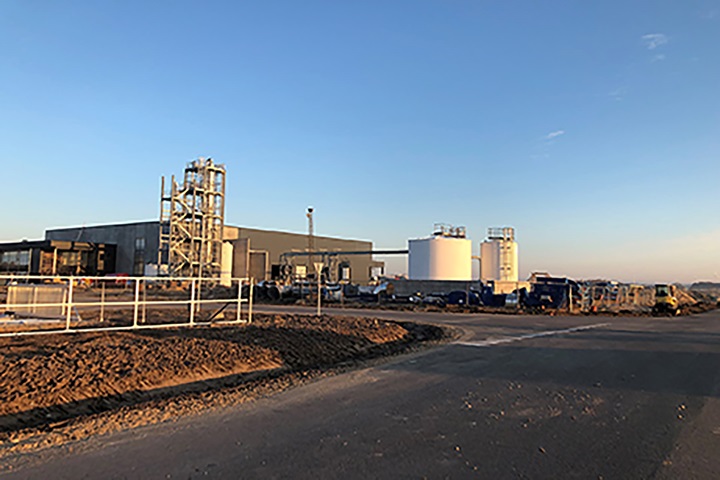- LD-PE Recycling
- HD-PE Recycling
- PP Recycling
- PS Recycling
- PET Recycling
- PVC Recycling
Solvent-based recycling
Solving your solvent-based recycling challenges
- Low residual VOC levels
- Prevention of product degradation due to elevated process temperatures through efficient heat transfer equipment
- Ideal for sensitive products due to low shear forces in the process
- Lower electrical power consumption due to the absence of heavy rotating equipment
- Reduced mechanical maintenance
- Moderate capital cost due to unique process concept
- Dedicated testing facilities available
Sulzer Chemtech’s DEVO™ technology
Growing sustainability trends demand innovative plastic recycling solutions, and solvent based recycling processes are a particularly promising technology in this regard. These processes are a novel technology allowing the recycling of, among others, complex polymer compounds like multilayer packaging or contaminated polystyrene using selective dissolution. Using this technology, waste streams of polymers can be recovered and purified achieving qualities similar to the quality of virgin plastics. To successfully recycle end-of-life polymers and to achieve high-quality polymer qualities using selective solvents, it is essential to remove solvents in the final stage of the process - down to ppm levels.
Sulzer Chemtech offers its breakthrough DEVO technology to address this issue. The solution, initially created and commonly used for the purification of virgin plastics, allows the evaporation of solvents in a broad range of polymer concentration, starting from low-viscous solutions and ending with solvent concentrations in the ppm range in the final product. This can be achieved by using our proven heat exchangers such as Sulzer’s SMR and SMXL as well as uniquely designed degassing chambers with proprietary flow distributor technology. Each stage is designed to increase the polymer solution’s temperature rapidly, homogenously, and in a well controlled manner. As a result, it is possible to also process thermally sensitive plastics without degrading them. Additionally, Sulzer’s static mixers allow the injection of stripping agents, into the polymer feed, which further improves the separation efficiency.
Compared to other technologies, which feature several moving parts, Sulzer’s degassing chambers are static equipment. Therefore, recycling facilities can benefit from low capital expenditure (CAPEX) and operating expenses (OPEX), as well as reduced maintenance activities associated with damages to and failure of moving components.
DEVO equipment, optionally, can be delivered as skid-mounted, including gear pumps and an overhead system for the recovery of the solvents as well as other key equipment.
Solvent purification
Solvents recovered from polymers in solvent-based processes (e.g., using our DEVO technology) may need further purification. Commonly, mixtures of solvent and anti-solvent or mixtures of solvents with extracted constituents of the recycled polymer must be separated before reusing the solvent in the dissolution or precipitation stage of the process.
Sulzer Chemtech’s distillation and evaporation technologies allow the separation of different solvents using our distillation and extraction technologies as well as the separation of heavier boiling impurities using our evaporation technology (falling film, thin film, short path evaporators).
To design such processes, we not only have experienced in-house simulation capabilities but also world class test centers, to scale and prove the solvent purification processes.
Contact our Innovations team below


